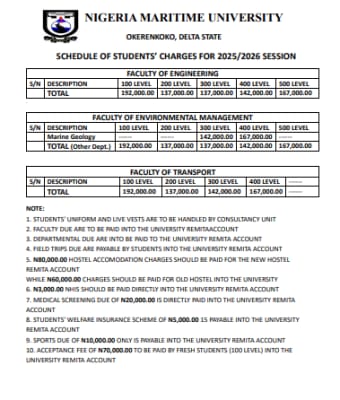The Managing Director of the Nigerian Education Loan Fund (NELFUND), Mr. Akintunde Sawyerr, has clarified why the Fund is unable to pay the tuition fees of newly admitted students before they complete their registration and receive official matriculation numbers.
Sawyerr said the decision is rooted in financial prudence, verification challenges, and the need to prevent large-scale abuse of the national student loan programme.
Risk of Misallocated Funds
Speaking on the growing concerns from students and parents, Sawyerr noted that paying fees before registration exposes NELFUND to the danger of funding students who may never enroll.
He explained that many freshers ultimately change their institution, decline admission, or fail to complete clearance, creating a high possibility of disbursing loans to non-participating students.
According to him, releasing funds without confirmed enrollment would amount to “disbursing against intention”, a practice that could result in significant financial losses for the Fund.
He warned that premature payments could lead to billions of naira being allocated to students who never commence academic activities.
The Matriculation Number Challenge
Another major reason for the restriction is the verification requirement that each beneficiary must possess a valid matriculation number.
However, freshers typically do not have matriculation numbers until they have paid their acceptance and registration fees. This creates a national bottleneck.
The NELFUND chief described the situation as a “circular dilemma,” where students expect the loan to pay their fees, yet the Fund cannot release payment until the institution confirms that the student has been formally registered.
To ease the pressure, Sawyerr disclosed that discussions are ongoing with institutions to allow freshers to temporarily use their JAMB registration numbers for verification, pending the issuance of matriculation numbers.
This temporary measure, he noted, will only succeed with full cooperation from tertiary institutions.
Flaws in the Original Education Loan Act
Sawyerr also pointed out a number of challenges inherited from the first Education Loan Act passed in 2023.
The initial legal framework, he said, contained several limitations:
- The guarantor requirement made the loan inaccessible for many low-income students.
- The income threshold, which disqualified families earning above ₦500,000 annually, was unrealistic given current economic conditions.
- The law provided tuition only, with no financial support for upkeep or living expenses.
These issues led to the repeal of the earlier Act and the introduction of a new Education Loan Act in 2024, which expanded eligibility and removed key barriers.
Impact on Freshers and Institutions
Students Caught in Delay Cycles
Many freshers relying on the loan are unable to register on time because NELFUND is still verifying their academic and identity details.
Some who paid fees with personal funds while waiting for their loans have had their institutions instructed to refund them once NELFUND disburses.
Universities Under New Compliance Pressure
NELFUND has directed institutions to:
- speed up the issuance of matriculation numbers,
- promptly verify student details on the loan portal,
- process refunds where double payments occurred,
- avoid withholding information when fees have already been covered by the Fund.
Several institutions have been cautioned for failing to notify students after their fees were paid through NELFUND.
Policy Implications and the Future of the Scheme
Sawyerr emphasized that the Fund must strike a balance between accessibility and sustainability.
He noted that while students expect immediate support, NELFUND must protect public resources and ensure that loans are disbursed only to verified, fully enrolled students.
The MD added that long-term success depends heavily on cooperation from tertiary institutions, tighter verification processes, and improved communication across all stakeholders.
He stressed that premature payments could undermine the nationwide loan scheme, making it difficult for the Fund to continue supporting students in future academic cycles.
Moving Forward
NELFUND is working with institutions to harmonize academic calendars, streamline registration timelines, and ensure that future freshers do not experience the same delays.
Further refinements are also underway to strengthen transparency, refund processes, and data synchronization across institutions.



